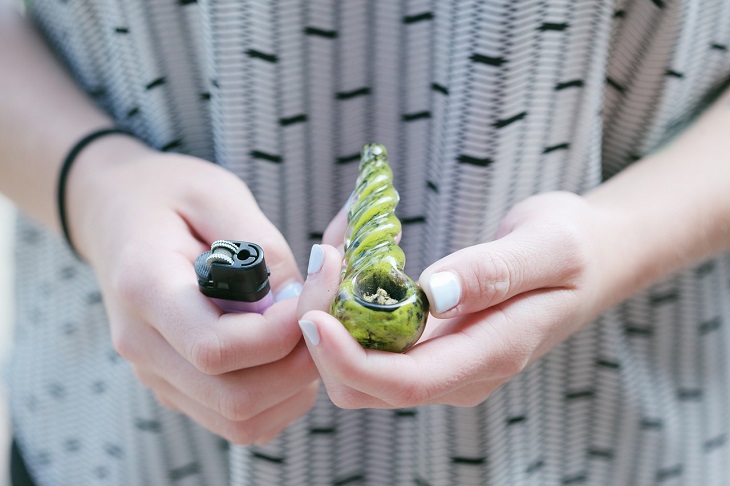It’s a sad fact that one in three people will get cancer at some stage in their lives. That’s a scary thought to face – it means that if it’s not you, it’s likely to be a person close to you. Everybody knows someone who has been, or is currently, affected by cancer. For some people, the treatment for cancer can be as bad as or worse than the actual disease. There are so many debilitating side effects to deal with, alongside the trauma of fighting the illness itself. Patients often turn to alternative therapies to help them cope with the pain of the disease and the disabling effects of the treatment drugs. A question frequently asked is “Can medical marijuana help cancer patients?” Below we’ll show you why we believe it is indeed possible to treat cancer symptoms with MMJ.
How can medical cannabis help cancer patients?
Research and a lot of anecdotal evidence point to the fact that MMJ products can help in alleviating the extreme nausea and vomiting taht often results from chemotherapy treatment. Additionally, medical cannabis has been shown to relieve pain. Using MMJ to help with pain relief is clearly a better option than taking yet more drugs, which will have their own side-effects to add to those caused by the chemotherapy. WebMD also tells us that medical marijuana can help treat nerve pain and damage caused by chemotherapy and that it can play a part in alleviating inflammation. Furthermore, according to Cancer.org, some scientific reports have indicated that MMJ can slow the growth of or even kill off certain types of cancer cells.
While there is still a long way to go yet when it comes to cancer patients and medical marijuana, it’s comforting to know that research and tests are constantly being carried out, and that so far there is good evidence to show that MMJ can help cancer patients.
What’s the best way to ingest MMJ?
MMJ comes in many different forms. You can buy or make your own edibles containing it. This might be preferable for some patients who prefer not to smoke, but there are a couple of downsides to edibles. Firstly, it takes longer for the marijuana to get into your system this way, and secondly it’s harder to control how much you’re actually ingesting. You might take a couple of bites of something and think “OK, this is doing nothing for me” – so you take a couple more bites, and in a little while, it hits you hard. Smoking medical marijuana is much more immediate and therefore more controllable, and is the recommended way to help relieve cancer symptoms and chemotherapy side effects.

Image by Sharon McCutcheon on Pixabay: What’s the best way to treat cancer symptoms with MMJ?
How do I get my MMJ card?
Whichever way you take it, it’s advisable to seek advice on the best strain and the definitive amount to take for your particular condition. We can help you with that at MMJRecs. We can inform you about the qualifying conditions for MMJ (cancer most certainly being one of them), and our expert medical marijuana doctors can not only assess you for qualification, but can also advise you on the best strains and amount to take to help treat cancer symptoms with MMJ. You simply have to fill in a form online, and the assessment can then take place virtually so you don’t have to leave your home and go through a face-to-face consultation. Our experts are always respectful and professional.
If you qualify, your MMJ card will be sent to you immediately and you can start using it at dispensaries and/or for growing your own plants. Even if recreational marijuana is legal in your particular state, owning an MMJ card is definitely beneficial for the following reasons: you will be allowed to grow more of your own plants; recreational use of MMJ is not allowed in public places, but with an MMJ card, you can smoke medical marijuana wherever tobacco smoking is allowed; and finally, there’s no sales tax on MMJ in most states. All good news!
CBD and THC
THC (tetrahydrocannabinol) and CBD (cannabidiol) are both components present in cannabis plants. The main difference between them is that THC can give you that trademark cannabis “high,” whereas CBD is non-psychoactive. Medical marijuana generally has a much lower THC content than recreational marijuana, or contains no THC at all. Which strain you should use really depends on your own particular desires and needs. THC has been shown to ease nausea, pain, and inflammation but it can cause or increase anxiety. CBD, on the other hand can ease anxiety as well as pain and inflammation. To treat cancer symptoms with MMJ, a strain with high levels of CBD is often the best way to go.

Image by Margo Amala on Unsplash: Cancer patients and medical marijuana can go hand in hand.
Hopefully this has helped in some way to answer the question “Can MMJ help cancer patients?”. We’d be pleased to help you further on MMJRecs.com. The bottom line is that if you are dealing with cancer, it’s definitely worth exploring the possible benefits of medical marijuana. We would recommend consulting with your own physician and definitely don’t give up any conventional medicines without taking advice. MMJ can work alongside your regular treatment by helping to relieve some of the symptoms and drug side effects, and perhaps by negating the need for further painkilling drugs.
Featured image by LMoonlight from Pixabay
